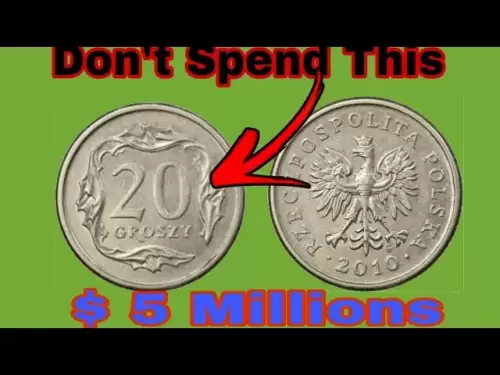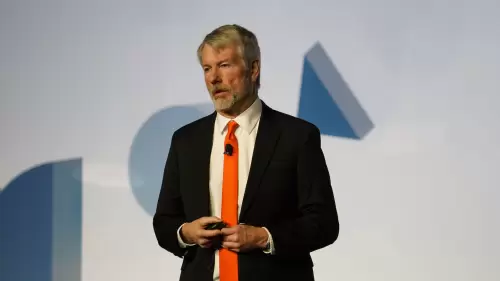 |
|
 |
|
 |
|
 |
|
 |
|
 |
|
 |
|
 |
|
 |
|
 |
|
 |
|
 |
|
 |
|
 |
|
 |
|
Cryptocurrency News Articles
Canada Finally Goes After Chinese EVs with 100% Surtax, Beijing Retaliates
Oct 01, 2024 at 03:02 am
The new tariffs on Chinese EVs finally go into effect on Tuesday, October 1, 2024. It was back in August that Canada announced the tariffs on electric

Canada has finally imposed the new tariffs on Chinese electric vehicles (EVs) on Tuesday, October 1, 2024, fulfilling an announcement made back in August about the tariffs on EVs and select hybrid passenger cars, buses, trucks, and delivery vans.
Prime Minister Justin Trudeau has called this move an attempt to “level the playing field for Canadian workers.” According to him, it will allow the country's nascent EV industry to compete not just in the domestic market but also in North America and globally.
“Actors like China have chosen to give themselves an unfair advantage in the global marketplace, compromising the security of our critical industries and displacing dedicated Canadian auto and metal workers. So, we're taking action to address that.”
– Trudeau
With the 100% surtax, the price of Chinese-made EVs will effectively double. As is the case with most taxes, most of them will be passed on to customers, discouraging them from purchasing imported vehicles.
Up until now, Canada has been imposing a 6.1% import tariff on electric vehicles that are manufactured in China.
Last week, Minister of Finance Chrystia Freeland also said that the country is “absolutely” considering banning Chinese-made software in EVs. Freeland told reporters:
“We take really seriously intentional Chinese overcapacity, and we take very seriously the security threat from China. That's why we acted decisively… and we are looking at whether to impose further measures.”
In addition to Chinese EVs, the federal government will also be levying an additional tax of 25% on imports of aluminum and steel products from China. These taxes go into effect a couple of weeks later, on October 15.
Late in August, the country’s Department of Finance (DOF) first announced a series of measures to protect local workers from China's unfair trade policies. Also, with this, the aim has been to be in alignment with the trading partners of Canada and prevent any trade diversions due to their recent actions.
At the time, DOF noted that the local auto manufacturing industry is directly responsible for more than 125,000 good-paying Canadian jobs, while the local steel and aluminum sectors support more than 130,000 jobs across the country.
It also pointed out that the potential of Canada’s EV supply chain is rated top in the world, driven by the country's raw materials, talented workers, clean electricity, and specialized production capabilities needed to build EVs.
However, the Canadian auto sector is facing unfair competition from Chinese manufacturers, “who benefit from unfair, non-market policies and practices,” noted the government officials.
The intentional, state-directed policy of China—overcapacity and lack of rigorous labor and environmental standards—undermines Canada’s long-term economic prosperity and threatens the EV industry around the world, said the agency.
The DOF further announced the launch of a 30-day consultation, which would run until October 10, concerning other sectors critical to the future prosperity of Canada. The sectors covered here are crucial minerals, semiconductors, solar products, and batteries and battery parts.
The government has also shared its plan to further limit the eligibility of its various incentives related to zero-emission vehicles to products that are made in those countries that have free trade agreements with Canada.
“This is about securing the fair, prosperous future Canadians deserve.”
– François-Philippe Champagne, Minister of Innovation, Science and Industry
Alignment with Trading Partners
The punitive tariffs from Canada came as the industry pressured the Canadian government to copy programs in other countries. Canada’s international partners have already been responding aggressively to unfair competition in their EV industries.
This year, the US increased tariffs on Chinese EVs—which went up from 25% to 100% for certain hybrids—along with steel and aluminum. The European Commission meanwhile began applying anti-subsidy duties on Chinese-made EVs.
So, the tariffs on Chinese EVs from Canada are similar to the initiative taken by the US. At the time, Trudeau and his cabinet also met with Jake Sullivan, the national security adviser of US President Joe Biden, who told reporters that the US wants its partners to adopt a coordinated approach to Chinese EVs.
Canadian government officials meanwhile denied enacting tariffs due to US pressure and that they had already been looking into the issue for months, even before the US imposed its tariffs in May.
The government, as per a senior government official, has been concerned about the Chinese automakers flooding North America with heavily subsidized cars made amidst “abysmal” labor and environmental standards.
Deputy Prime Minister Freeland claims the decision was made to protect the substantial investment the government has made in domestic electric vehicle manufacturing. Ottawa, the capital city of Canada, has set aside tens of billions of dollars to support EV production at planned sites.
“The reality is China has an intentional state-directed policy of overcapacity and over
Disclaimer:info@kdj.com
The information provided is not trading advice. kdj.com does not assume any responsibility for any investments made based on the information provided in this article. Cryptocurrencies are highly volatile and it is highly recommended that you invest with caution after thorough research!
If you believe that the content used on this website infringes your copyright, please contact us immediately (info@kdj.com) and we will delete it promptly.






























































